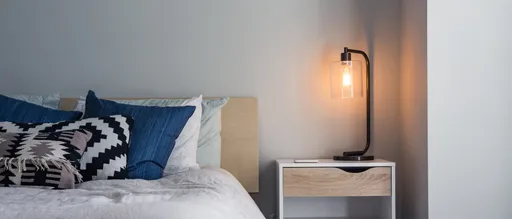“Sleep is the best meditation.” ~ The Dalai Lama
When sleep is lacking, all else suffers. When we are not prioritizing sleep, everything else begins to decline.
We don’t feel ourselves, we operate in a chronic state of tiredness, we suffer from mental exhaustion, and we cannot perform our work to the best of our ability.
If you are someone who has not been sleeping well for quite some time, you may need the tips below.
In this article, we will be going over 20 tips for getting better sleep.
If we can get better sleep, we will notice a positive shift in our overall mood and outlook on life. We will work smarter and better. Mental clarity will guide us in our work, and our bodies will feel more rested.
The benefits of sleep are astronomical. The side effects of insufficient sleep are devasting.
Taking time to review these tips may aid in your overall health and well-being.
Let’s begin!
Tips to Getting Better Sleep
For the sake of simplicity, as a general note moving forward throughout this article, all quotes are from Dr. Matthew Walker and his book Why We Sleep.
Some tips for getting better sleep include the following:
1. Understand your Chronotype.
By understanding your Chronotype, you can know what times are best for you to go to sleep.
Some people are night owls. Others are early birds. Figure out what your circadian rhythm should be by figuring out your Chronotype.
Visit The Sleep Doctor to take the brief quiz and find out your Chronotype!
2. Regarding travel, use Melatonin on the first day of arriving in a new country.
By taking Melatonin, your body will adapt to the time change and new schedule. Melatonin will help you sleep better the first night and help your body adjust more quickly.
Be sure only to do this on the first day.
3. Don’t have caffeine after 8 hours before going to bed.
Caffeine is “not only prevalent in coffee, certain teas, and many energy drinks but also foods such as dark chocolate and ice cream” (pg. 27).
Caffeine late in the afternoon will prevent us from being able to fall asleep and enter a deep state of rest. Be sure to have your last form of caffeine intake 8 hours before going to bed.
4. Understand Adenosine and when to have first caffeine intake.
Walker says that “the longer you are awake, the more adenosine builds up, creating an increasing urge (pressure) to sleep” (pg. 30).
Adenosine is part of our natural wake-up cycle. If we have caffeine right when we wake up, we stunt adenosine from occurring. This leads to feeling groggy in the morning and hitting a quicker crash in the afternoon.
Wait 60-120 minutes after waking up before caffeine intake. This will allow your body enough time for adenosine to build up. Once you are more alert and awake, have coffee or tea.
Waiting to have caffeine will boost the caffeine’s effect throughout the afternoon and will make you feel more energized throughout the day.
5. Know the difference between time slept and time in bed.
Walker states, “Some people confuse time slept with sleep opportunity time” (pg. 261).
Plan on an extra 30-60 minutes in bed. This will include the time it takes to fall asleep and potentially wake up in the middle of the night. Adding 30-60 minutes to your bedtime will help you get 8 hours of sleep.
Therefore, set your alarm for 8 ½-hours or 9 hours from when you go to bed.
6. Read a paperback/hardcover book or a Kindle.
Walker states, “Compared to reading a printed book, reading on an iPad suppressed melatonin release by over 50 percent at night” (pg. 269).
Don’t allow blue light to keep you up. Try to read printed books (or a Kindle) to allow your brain time to wind down.
7. Don’t drink alcohol close to bedtime (or at all).
Walker says that “Alcohol is in a class of drugs called sedatives. It binds to receptors within the brain that prevent neurons from firing their electrical impulses…Alcohol sedates you out of wakefulness, but it does not induce natural sleep” (pg. 271).
Most people think they sleep great throughout the night after alcohol, but that is because alcohol wipes away the ability to recognize the times one wakes up throughout the night. Due to this, alcohol makes people think they sleep great when it keeps them from a good night’s sleep.
Try to have alcohol 4-8 hours before going to bed if you choose to have a drink. Preferably, though not popular, it is better not to have alcohol.
8. Take a hot bath or shower before bedtime.
A hot bath or shower before bedtime helps all the heat rush to your skin’s surface. After getting out of the bath or shower, the heat will release. This makes your body feel cooler and prepares you for much better sleep.
9. Don’t use the snooze button.
Walker states, “The snooze feature means that you will repeatedly impose that cardiovascular spike again and again within a short span of time. Step and repeat this at least five days a week, and you begin to understand the possible consequences to your heart and nervous system across a life span” (pg. 280).
Every time our alarm goes off, we enter a Sympathetic Response (stress response). Doing this over and over is harmful to our Autonomic Nervous System.
Better to wake up after the first alarm than to keep putting our body under unnecessary stress (which can lead to complications both in the short-term and long-term).
10. Refrain from taking sleep pills.
Walker mentions, “Sleeping pills do not provide natural sleep, can damage health, and increase the risk of life-threatening diseases” (pg. 283).
During a study, “Those taking sleeping pills were 4.6 times more likely to die over this short two-and-a-half-year period than those who were not using sleeping pills” (288).
11. Go to bed only when sleepy.
This will help your body get into its normal circadian rhythm.
12. Avoid sleeping on the couch early/mid-evenings.
Walker recommends to not “take naps after 3 p.m. Naps can help make up for lost sleep, but late afternoon naps can make it harder to fall asleep at night” (pg. 342).
13. Mentally decelerate before bed.
Walker suggests not to “overschedule your day so that no time is left for unwinding. A relaxing activity, such as reading or listening to music, should be part of your bedtime ritual” (pg. 342).
14. Remove visible clock faces from view in the bedroom,
Preventing clock-watching anxiety at night (pg. 342).
15. Go to bed with a proper amount of food.
Walker states that “for healthy sleep, the scientific evidence suggests that you should avoid going to bed too full or too hungry, and shy away from diets that are excessively biased toward carbohydrates (greater than 70 percent of all energy intake), especially sugar” (pg. 295).
16. Properly balance wake and sleep time.
Walker says that “Both sleep and wake provide synergistic and critical, though often different, survival advantages. There is an adaptive balance to be struck between wakefulness and sleep. In humans, that appears to be around sixteen hours of total wakefulness, and between seven and nine hours of total sleep, for an average adult” (pg. 264).
17. Receive proper sunlight (or blue light) exposure.
Get sunlight first thing in the morning. If you are unable to get sunlight, then the blue light will suffice. This automatically helps our brain to understand that it is time to begin the day.
Strive to be in sunlight (or blue light) for 15-30 minutes of your day.
18. Take 15–20-minute naps in the late morning/early afternoon.
Walker states, “Sleep is constantly modifying the information architecture of the brain at night. Even day-time naps as short as twenty minutes can offer a memory consolidation advantage, so long as they contain enough NREM sleep” (pg. 115).
19. Eliminate screens an hour before going to bed.
Our brain interprets blue light the same way as looking at the sun. Our body may be tired and ready for bed, but our brain becomes confused when we look at screens before bed.
The brain recognizes the body is tired, but the blue light “tricks” the brain into thinking it is still daytime and is required to stay awake.
Strive to shut off phones, computers, iPads, and television an hour before bed. This will give your brain time to wind down and prepare for a good night’s rest.
20. Don’t drink anything for two hours before going to bed.
This will keep you from using the restroom in the middle of the night.
Next Steps to Mastering Sleep & Feeling Energized
Now that you have these 20 tips to aid you in getting better sleep, it is time to know additional options to master your sleep.
If you are suffering from a lack of energy, mental fatigue, brain fog, or not performing at a level you once were able to, you could require additional help.
We recommend viewing the following articles on our learning center regarding reasons why you might be feeling tired all the time and who to see to help you perfect your sleep:
- Why Am I So Tired?
- Tired But Can’t Fall Asleep? 8 Reasons Why
- Should I See a Doctor if I’m Always Tired? How to Fix Fatigue
You have what it takes inside you to make a definite choice that will change the future trajectory of your sleep.
Our team at Tiger Medical has the experience, clinical skills, and coaching acumen to help you get your health back and optimize your sleep.
To talk to one of our professionals, click here to schedule your call!



 8min to read
8min to read
 9min to read
9min to read
 11min to read
11min to read